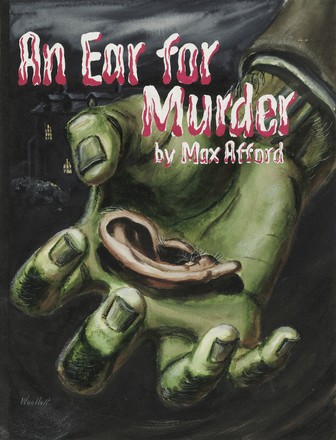
An Ear for Murder

“A pulp cover illustrated its story ‘in media res’ – using an image designed to make the reader stop and ponder what has happened before and how will it end? And hopefully buy the book to find answers. As pulps were generally viewed from a distance, they had to signal ‘come on... buy me’, drawing browsers even closer to engage with physical contact with the book. Thus the images had to whisper mental associations transitory and complex- they contained public symbols that mirrored private desires”
Australia
has published large numbers of paperback fiction books since settlement, with
Fergus Hume's The Mystery of the Hansom Cab (1886) seen as the start of the modern
style. Up until the 1920s, the NSW Bookstall Company published more than 200
cheap paperbacks, mainly crime fiction, sold through their chain of railway
station kiosks. For many the golden era remains the immediate postwar period,
when Australian authors such as Carter Brown, Marc Brody and Larry Kent (all
pseudonyms) ruled the newsstands. Their trademarks were lurid covers and a
sensational tabloid style usually based on American themes and slang. At the
time these books were widely dismissed as trash.